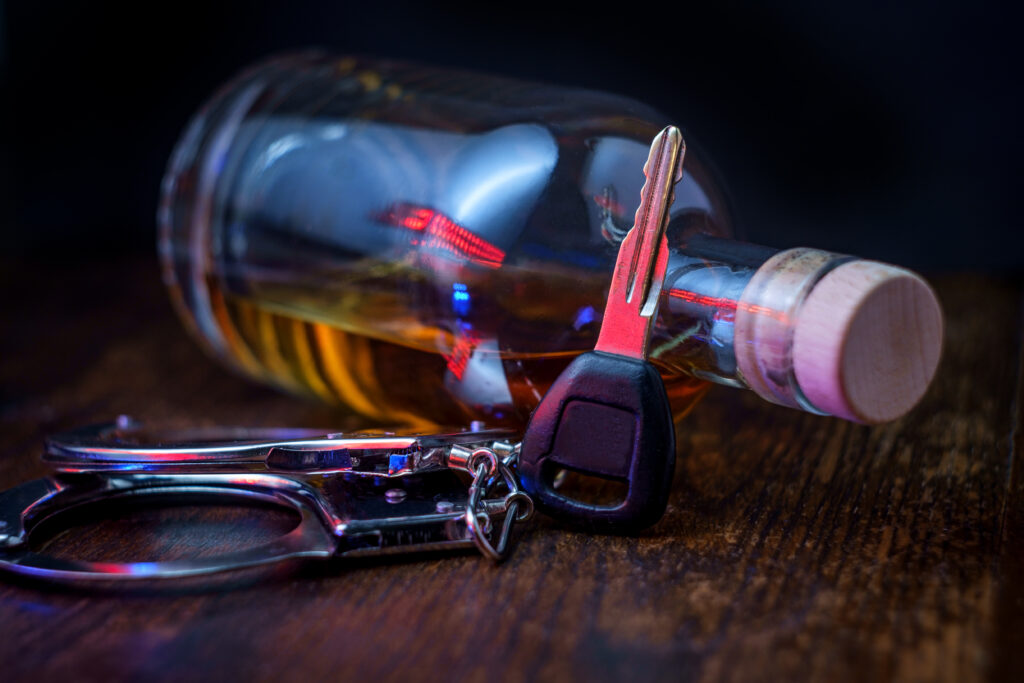If you’re researching DUI cases, chances are you or someone you know is dealing with the fallout of a drunk driving charge. The first thing you should know? You’re not alone. Every day, across the country, people are arrested, charged, and left confused by the whirlwind of court dates, paperwork, license suspensions, and fines that follow.
This guide is your starting point. Whether you’re just trying to understand what aDUI is or you’re already navigating the legal process, we’re breaking down DUI cases with clarity and real-world perspective. We’ll explore how offenses are classified, what penalties you can face, and how attorneys defend these charges—all while weaving in real-life stories that bring the legal maze to life.

What Is a DUI and How Are DUI Cases Classified?
A DUI (Driving Under the Influence) charge means a person is accused of operating a vehicle while impaired by alcohol, drugs, or both. Though DUI laws vary by state, the core idea is the same: driving when you’re not in full control of your physical or mental faculties is against the law.
DUI cases fall into several categories depending on the facts. Common types include:
- First-time DUI offense
- Repeat DUI offense (second, third, etc.)
- Aggravated DUI (e.g., high BAC or driving with a child passenger)
- DUI with injury or fatality
- Underage DUI
Each type of offense carries different penalties, ranging from fines and license suspension to jail time and mandatory rehabilitation programs.
Real Story: Tom’s First-Time DUI Mistake
Tom, a 28-year-old mechanic from Houston, went out with friends one Friday and had a few drinks. Feeling “fine,” he decided to drive home. He was pulled over for a broken taillight and failed the breath test with a BAC of 0.10%.
Charged with a misdemeanor DUI, Tom had no idea how serious his situation was. His driver’s license was suspended for 90 days, and he had to install an ignition interlock device on his truck. He also paid over $5,000 in fines and legal fees.
This was his first brush with the law—and a crash course in how DUI cases operate.
What Happens After a DUI Arrest?
Once someone is arrested for DUI, the case begins a series of legal events. These steps can vary slightly by state, but here’s the general path:
- Arrest and booking
- Administrative license suspension hearing
- Arraignment (first court appearance)
- Pre-trial motions and hearings
- Negotiations or plea bargain
- Trial (if no plea is reached)
- Sentencing (if convicted)
During this time, evidence like breath or blood test results, dashcam footage, and police reports become central to the case.

Administrative vs. Criminal DUI Cases
Many people don’t realize that DUI cases often have two parts: administrative and criminal.
- Administrative proceedings deal with your driver’s license. In most states, if you fail a breath test or refuse one, your license is automatically suspended unless you request a hearing.
- Criminal proceedings determine whether you’re guilty of DUI under state law and what penalties you’ll face.
You can lose your license even if you’re found not guilty in court. That’s why it’s critical to respond to all notices and show up at every hearing.
What Are the Penalties in DUI Cases?
Penalties vary by jurisdiction and whether the case involves aggravating factors. Here’s a breakdown of what someone can expect in typical DUI cases:
First-Time DUI
- Fines from $500 to $2,500
- Jail time up to 6 months
- License suspension for 3 to 12 months
- DUI education or treatment programs
- Possible ignition interlock device
Repeat DUI Offense
- Harsher fines and longer jail time
- Multi-year license suspension
- Longer DUI program requirements
- Mandatory use of an ignition interlock device
- Possible felony charges for third offense and beyond
Aggravated DUI
Aggravated DUI cases occur when the situation includes factors like:
- High BAC (e.g., over 0.15%)
- DUI with a child in the car
- Driving without a license
- Causing property damage, injury, or death
Penalties often include felony charges, years in prison, and steep financial restitution.
Defending DUI Cases: What Strategies Work?
Not every DUI case ends in conviction. A strong defense attorney will look at every angle, from the legality of the traffic stop to the reliability of the chemical test.
Common defense strategies include:
- Unlawful stop: Officer didn’t have probable cause to pull you over
- Improper testing: Breathalyzer not calibrated or officer not trained
- Chain of custody errors: Blood samples mishandled or mislabeled
- Medical conditions: Certain health issues can mimic intoxication

Case Example: Breathalyzer Misstep
In one case, a man in Florida was charged with DUI after blowing a 0.12%. His attorney discovered the breathalyzer used had failed a calibration test three weeks earlier. The judge ruled the BAC result inadmissible, and the charge was reduced to reckless driving.
This outcome saved him from jail time and a criminal conviction. It’s a reminder that DUI cases often depend on small details—and having someone who knows how to find them.
How Long Do DUI Cases Last?
The length of time varies. Some DUI cases are resolved in a few weeks with a plea deal. Others take months or even years if they go to trial. Each case follows its own timeline based on the unique facts and how the defense team approaches the strategy.
Factors that affect case length include:
- Court backlog
- Complexity of the evidence
- Whether it’s a misdemeanor or felony
- Willingness to accept a plea bargain
Even routine DUI cases can get delayed if the court is short-staffed or awaiting lab results. That’s why it’s essential to manage your expectations and remain patient during the process.
The longer the case drags on, the more emotionally and financially draining it becomes. That’s why it’s important to hire a competent attorney early. A prepared attorney can move things along while protecting your rights every step of the way.
The Impact of a DUI on Your Life
Beyond the courtroom, a DUI conviction leaves lasting effects. These may include:
- Higher insurance premiums
- Difficulty passing background checks
- Employment issues—especially in jobs that require driving
- Immigration consequences for non-citizens
- Child custody complications in family court
These ripple effects can persist for years, long after the legal punishment is over. They often impact relationships, future plans, and overall financial stability.
Even first-time offenders may deal with these long-term setbacks. In fact, many people find that the real punishment begins after the court case ends. For this reason, understanding the full impact is just as important as knowing the law itself.
Can DUI Cases Be Expunged?
In some states, yes. Expungement means the DUI conviction is erased from your public criminal record. This process can be life-changing for those trying to rebuild after a mistake.
Eligibility for expungement depends on:
- Whether it was a first offense
- If all sentence terms were completed
- State-specific waiting periods
- No new criminal charges during the waiting period
Courts may require you to submit a petition, attend a hearing, and show proof of rehabilitation. Knowing what’s required ahead of time helps avoid unnecessary delays.
Even if expungement isn’t an option, sealing the record or pursuing a reduction can still help. Talk to a defense attorney to explore all post-conviction relief options. These options might restore job opportunities or even housing eligibility.

What About DUI Cases Involving Drugs?
DUI doesn’t only apply to alcohol. Many DUI cases involve drugs—both illegal substances and prescription medications. Officers look for signs of impairment regardless of what substance was involved.
These cases can be harder to prove, since there’s no “legal limit” like the 0.08% BAC threshold for alcohol. Prosecutors rely on toxicology reports, field sobriety tests, and officer observations. These elements can sometimes be ambiguous or poorly documented.
But these are also easier to challenge, because drug impairment is subjective and test results don’t always indicate intoxication at the time of driving. A smart defense can question whether the driver was truly impaired or simply had residual traces of medication in their system.
Example: Prescription Pitfall
Lisa, a nurse, was arrested for DUI after swerving on her way home. She had taken a prescribed anti-anxiety medication. A blood test showed the drug in her system, but her lawyer argued there was no clear evidence of impairment.
The charge was dropped. Her case highlights how DUI cases involving prescriptions require a careful, fact-based defense.
Final Thoughts: Your Rights in DUI Cases
If you’re facing a DUI charge, it’s important not to panic—but equally important not to ignore it. DUI cases can be overwhelming and have serious consequences, but understanding your rights and acting quickly gives you a better chance of protecting your future. Knowing the exact type of DUI charge you’re dealing with is essential since each classification comes with different legal and financial penalties. Both the administrative and criminal aspects of your case matter, and failing to respond to either can result in license suspension, fines, or worse.
An experienced lawyer can spot legal errors, challenge weak evidence, and work toward minimizing the impact. A DUI can affect your job, insurance, and record, so it’s worth exploring expungement or record-sealing options to protect your future.


